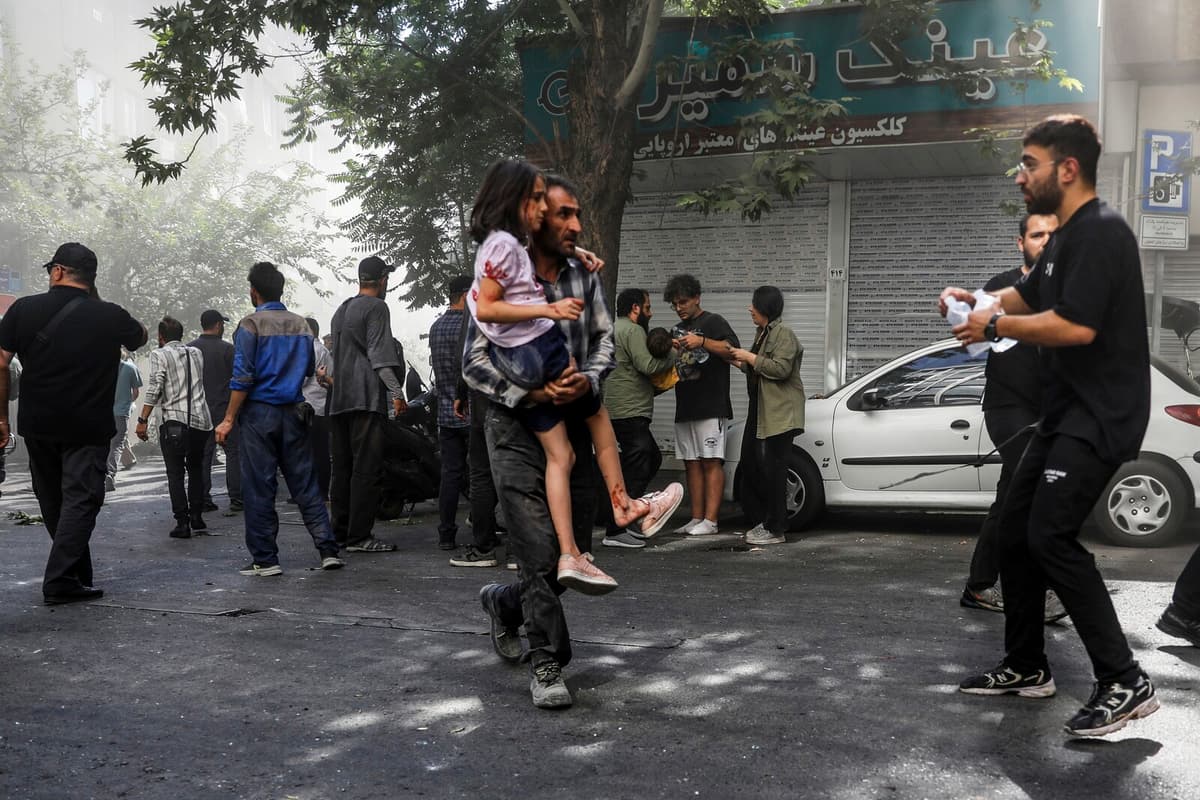The phrase "my enemy's enemy is not my friend" is frequently repeated among Iranians who, despite longer periods of internet shutdown, are trying to communicate with their surroundings. Many are opposed to their own regime's brutal rule – but still fear Israel's attack on the country.
I hope that not many civilians will be killed, says a man in his 40s who TT has been in contact with, who, however, is pleased that many Iranian military leaders have been killed by Israel.
Even when the internet works, it is difficult to get in touch with Iranians who can tell what they feel. Security forces are patrolling the streets and it is rumored that the regime is checking social media. Already a few days into the escalation with Israel, people who in various ways have expressed themselves negatively about the regime have been arrested.
Lack shelters
Israel's Defense Minister Israel Katz threatens that "the population of Tehran will pay the price" for Iran's retaliatory attacks on the country. In Israel, tens of people have been killed – in Iran, the number quickly became three-digit. Iranians, unlike Israelis, lack shelters and when Israel attacks high-ranking military personnel, entire buildings in densely populated areas are often blown up. Many civilians have been killed and injured.
Most attacks occur at night, without warning civilians, as Israel does not want to reveal its plans in advance. Loud explosions penetrate into homes and prevent the population from sleeping. The bombardments have made even those who experienced the war between Iran and Iraq in the 1980s jump high with fear.
But where should the people of Tehran go?
The subway can be used instead of shelters "in extreme crisis situations", Teheran City Council Mehdi Chamran has said. The stations are now open around the clock. However, not all of the city's approximately ten million inhabitants (17 million in the metropolitan area) can fit on the platforms.
Queues block the roads
Many are trying instead to head north, to calmer small towns by the Caspian Sea. But the roads are quickly blocked by queues and it is difficult to get hold of larger quantities of gasoline. On social media, there are video clips showing total stops in kilometer-long tunnels.
One who traveled is Swedish Mandana, who does not want to reveal her full name for security reasons. She traveled to visit her relatives in Tehran a few days before Israel launched its attack on Friday. The first night she could not sleep due to the attacks. On Saturday, she headed north with her cousins.
It was risky. I had heard that you should not go out, she says.
A protest against Israel had been organized and Mandana was afraid that the gathering would increase the risk of becoming a target. But they went out on the roads anyway – which she is glad for today.
After we left, it became full, she says.






